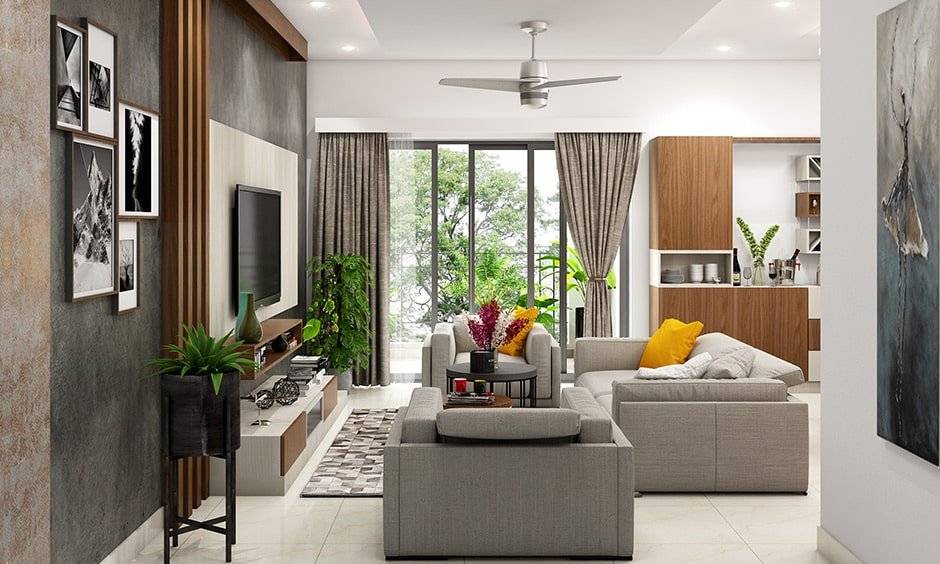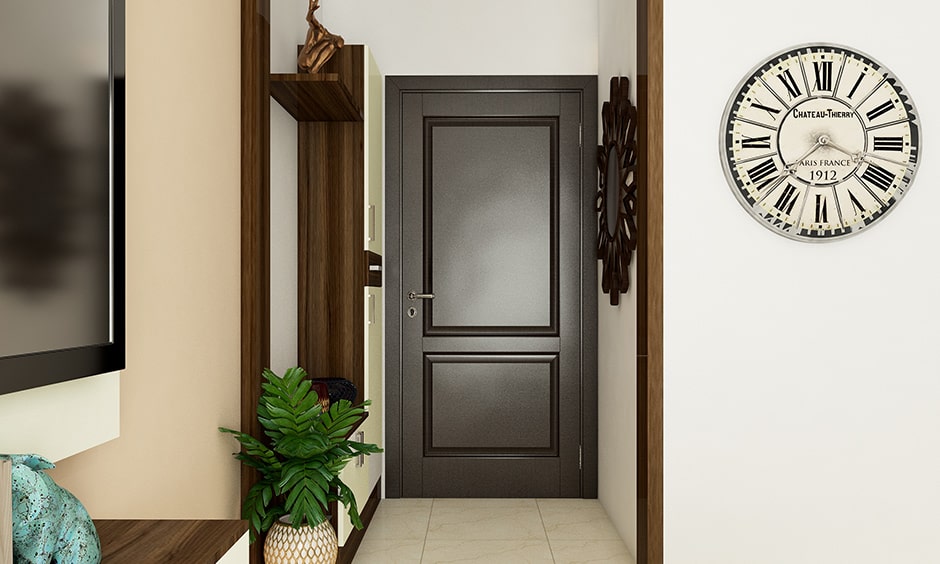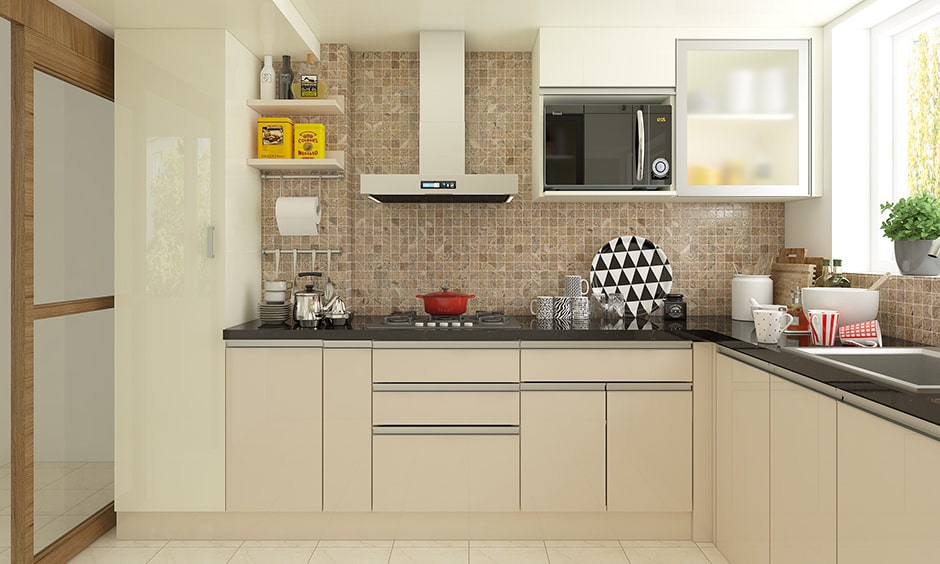
.jpg)

Furniture Fiesta Life & Culture
LIFE AND CULTURE SHOPPING TRENDS HOME TOURS DESIGN DECORATING

West-facing houses can bring prosperity and positive energy when designed according to Vastu Shastra principles, optimizing well-being, financial growth, and harmony.
There is a prevalent misconception that west-facing houses are inherently unsuitable for Vastu Shastra. While it’s true that north and east-facing homes are often considered more favorable in Vastu, this doesn’t mean that a west-facing home is unlucky or problematic. In fact, a well-designed west-facing house, when aligned with the principles of Vastu, can bring immense prosperity and positive energy. These homes can contribute significantly to your financial growth, personal development, and overall well-being.
By following the carefully researched Vastu tips for west-facing houses, you can enhance the energy flow, balance the elements, and create a living space that radiates positivity, harmony, and prosperity. Let’s explore how to optimize the benefits of a west-facing house and transform it into a sanctuary of peace and success.
According to Vastu Shastra, no direction is inherently better than others. Vastu does not favor one particular direction like the north over the south, or the east over the west. Rather, it emphasizes aligning the energies of your home with the natural forces of the environment. Therefore, the belief that west-facing homes are inauspicious is a myth. In reality, a west-facing house can be just as beneficial as any other direction if it adheres to Vastu principles. When correctly implemented, the Vastu guidelines for a west-facing house can promote peace, happiness, and prosperity for the residents.
West-facing homes are associated with vibrancy and positivity. These homes often feel warm and inviting, contributing to a sense of well-being. Residents of west-facing houses tend to experience greater prosperity, both materially and emotionally. This direction is favorable for nurturing deep personal relationships, improving social connections, and supporting professional growth. Many families find that their emotional bonds strengthen and their financial fortunes improve in a west-facing home.
Contrary to popular belief, a west-facing house is far from being bad or inauspicious. The key to unlocking the potential of any direction lies in following the principles of Vastu Shastra. As long as you adhere to the guidelines—such as ensuring proper placement of doors, windows, and rooms—your west-facing house can be a highly beneficial space. Vastu emphasizes the energy balance and alignment of the home rather than the specific orientation of the house. Therefore, when designed with care, a west-facing house can be just as auspicious as any other.

One of the most important aspects of Vastu for any home is the positioning of the main entrance. The main door is the gateway through which positive energy enters your home, so it’s essential to get it right. For a west-facing house, the Vastu guidelines recommend placing the main door within the favorable "padas" or sections. To determine the ideal placement, divide your home into nine equal parts starting from the north-west to the south-west. The third, fourth, fifth, and sixth padas are considered the most auspicious, as they allow for the optimal flow of energy into the house. If these padas are not available, the first and second padas can also be used for the main door, as they are considered neutral and do not disrupt the Vastu balance.

The master bedroom plays a critical role in a home’s overall energy. Vastu Shastra recommends placing the master bedroom in the south-western corner of the house, as this direction is known to promote stability, health, and harmony. If your home has multiple floors, consider placing the master bedroom on the top floor for enhanced benefits. This placement helps to create a sense of authority and peace for the homeowners.
For children's bedrooms, there are several options to choose from in a west-facing house. The north-western, south, and west directions are all suitable for children’s rooms, supporting their growth, energy, and creativity. Guest bedrooms, on the other hand, should ideally be located in the north-west direction, which fosters a welcoming atmosphere for guests while maintaining the home’s positive energy flow.

Colour plays a significant role in Vastu, as it directly influences the mood, energy, and ambiance of your home. For west-facing houses, Vastu Shastra suggests colors like beige, yellow, silver, and white. These colors are considered lucky and promote prosperity, joy, and calmness. Using these hues in your home decor can enhance the positive energy flowing from the west direction.
If your home faces more towards the west, you may also want to incorporate lighter shades of blue into the design. Blue, particularly lighter shades, can help unlock the full potential of the west-facing direction, promoting success, serenity, and wealth. However, if you feel overwhelmed by the multitude of color choices, neutral tones like off-white and cream are also highly recommended, as they are Vastu-neutral and help maintain a harmonious atmosphere.

The kitchen is often regarded as the heart of the home, as it nourishes the body and soul. To ensure that your kitchen promotes positive energy, Vastu Shastra suggests placing it in either the north-western or south-eastern part of the house. These areas are considered ideal for fostering health, wealth, and good fortune. A well-designed kitchen in these directions will help promote positive energy that flows throughout the entire home.
It’s crucial to avoid placing the kitchen in the south-western area of your house, as this can lead to disharmony and disrupt the balance of energy. A kitchen in the wrong direction can create tension and negatively impact the health and wealth of the residents.
Balancing the Five Elements: In a west-facing house, it’s essential to balance the five elements (earth, water, fire, air, and space). This balance can be achieved by incorporating the right materials, colors, and placements. For instance, earth elements like wood and stone can be used in the southwest, while water elements like aquariums or small fountains can be placed in the north-east.
Lighting and Ventilation: Ensure that your home is well-lit and ventilated. Natural light plays a crucial role in maintaining a healthy and energetic environment. Large windows in the west and ample airflow can help enhance the home’s vitality.
Furniture Placement: The placement of furniture, such as beds, sofas, and tables, should follow Vastu guidelines. For example, placing beds in the south or west direction allows for restful sleep and positive energy. Avoid placing heavy furniture directly under beams, as this can create a feeling of pressure or unease.
By following these detailed Vastu tips for a west-facing house, you can ensure a well-balanced home that attracts prosperity, happiness, and good fortune. With careful planning and attention to detail, your west-facing home can become a peaceful haven that supports your family’s well-being. If you require more personalized guidance or have specific Vastu concerns, don't hesitate to consult with an expert for a more tailored consultation.